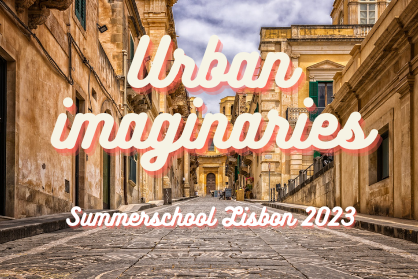What makes you a good urban ancestor? Have you ever wondered how cities will adapt to climate change and related challenges? Do your imaginings take a dystopian or utopian view? Maybe you’re inclined towards cyber or solar punk visions? Our approach to the city is an evolving and potentially transformative journey. This summer school invites you to reimagine the city through a transdisciplinary lens. Be prepared for some fun as well as for some deep reflection, all informed with powerful theory.
Context
Cities are tapestries of culture, science, art, history, diversity and innovation. At the same time, cities are hotspots of resource consumption, air pollution and greenhouse gas emissions. Yet, cities often are pioneers of more sustainable and equitable ways of living, while addressing air pollution, waste, mobility, housing and climate in a far more effective way than countries or provinces. For the world to thrive, cities are likely to be drivers of change towards regenerative living and being. They were once the birth of civilization. How can they be testing grounds for innovating and reimagining the urban space? What might a regenerative city look like and feel like? How do we harness the creative potential of cities to achieve regenerative futures for our planet?
Objectives
The goal of this summer school is to provide participants with theoretical and practical knowledge on transdisciplinarity, transformation and regeneration in urban spaces. The chosen approach integrates arts-based and experiential learning practices with theoretical knowledge. The summer school will offer a space to explore how to navigate between perceived polarities and seeming contradictions to create new, regenerative imaginaries of the future. Taking place at the Nova University of Lisbon, located near the historic center of the city, the summer school provides participants with opportunities of experiential learning through field visits and creative experiments.
Format
The summer school is conceptualized as a transdisciplinary learning space. It will offer a balanced program of lectures, interactive sessions and experiential field trips in Lisbon provided by experienced and internationally renowned trainers and researchers. The summer school will take place from 9:00 to 17:30 every day, with a lunch break from 12:30 to 14:00.
Admission requirements
Minimal requirement for admission is a Bachelor’s degree in Natural/Social Sciences/Humanities and interest in creative approaches. Travel grants are available for 12 participants. The grants cover travel costs up to 350 EUR and a daily allowance of 100 EUR/day. Participants based in Portugal are not eligible for the grants. Requests for the grants must be done until 28 February 2023.
Decision on grants will take into consideration motivation, geographical diversity, gender balance, as well as the COST Inclusiveness Policy. Participation in the Summer School is free of cost. However, participants without travel grants have to cover their travel and accommodation. All participants must make arrangements for travel. The reimbursement of grant holders is made after the summer school. This course can have a recognition of 6 ECTs for Master and PhD students. Upon completion participants will receive a certificate, however your institution will be required to grant equivalence. Participants need to deliver a group presentation on the last course day and a report after the course.
| Important Dates: | |
| 28 February 2023 | Application process |
| Mid March 2023 | notification of applicants |
| 3-7 July 2023 Summer School | |
Contact email
